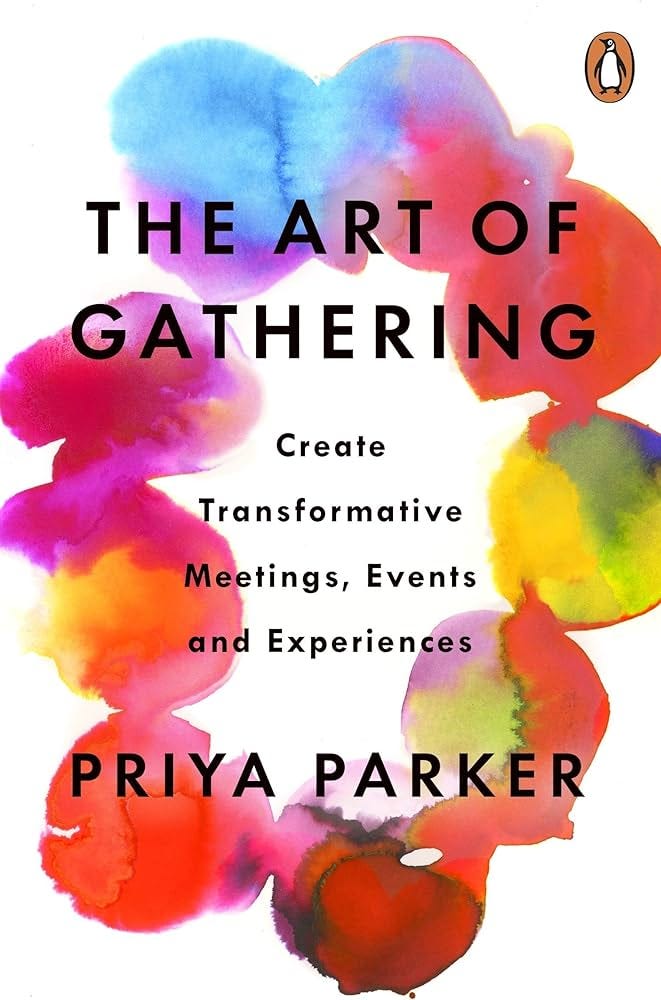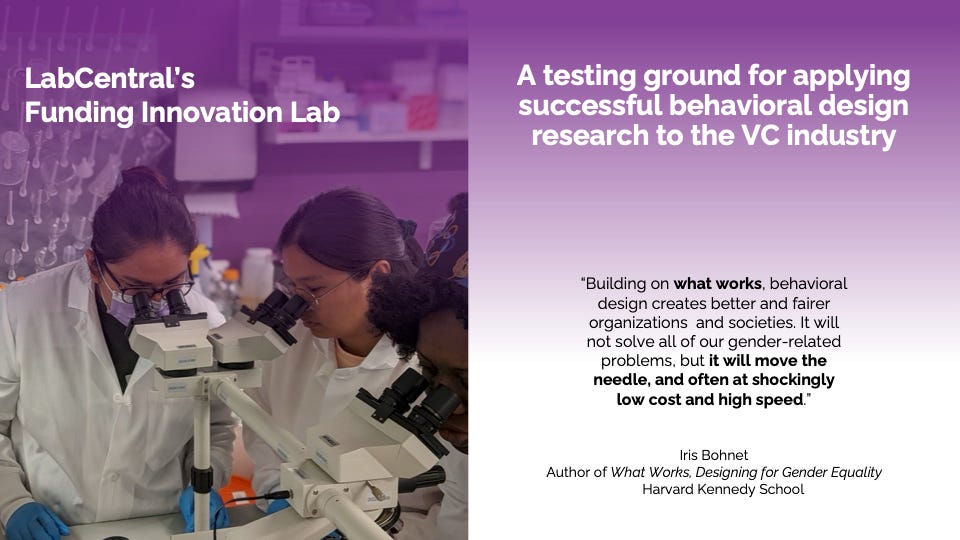Tiny, fast experiments
News from the Funding Innovation Lab: July 3, 2024, Edition 3
Welcome to LabCentral’s Funding Innovation Lab newsletter! Each Wednesday, we’ll be sharing a quick note from Beth McKeon, as well as timely articles to spark ideas and conversations about how the Funding Innovation Lab can identify critical challenges in the biotech funding model, rapidly test potential interventions, and share results with our community.
One of the most powerful tools we have to innovate on sticky, complex challenges like funding equity is what I call tiny, fast experiments. Through teaching hundreds of entrepreneurs this framework for rapidly testing business model assumptions, one of the clearest lessons I’ve learned is that we can run a tiny test that provides directionally correct learnings that guide future experiments. We don’t need lots of time, complicated multi-factor testing and long product launch cycles to hopefully maybe someday see results. We can find out right now.
This approach is derived from the agile framework, developed within the software development industry. Why spend months planning and years building a software product only to find out the specs were wrong at the very beginning when we could identify our riskiest assumptions or greatest opportunity for impact, rapidly test it, and then iterate and build simultaneously.
When I describe the Funding Innovation Lab’s 8 week sprint cycle, I am calling on this experience of coaching companies and leading my own teams through tiny, fast experiment cycles. And I want you to be able to picture what this could look like.
In her book, The Art of Gathering, Priya Parker, a world-renowned expert on group facilitation, describes an intervention with doctors that improved patient outcomes by 35 percent.
“Until recently, when medical teams gathered to operate on a patient, studies showed that they often didn’t know one another’s names before starting. A 2001 Johns Hopkins study found that when members introduced themselves and shared concerns ahead of time, the likelihood of complications and deaths fell by 34 percent. Surgeons, like many of us, assumed that they shouldn’t waste time going through the silly formalities of seeing and being seen for something as important as saving lives. Yet it was these silly formalities that directly affected the outcomes of surgeries. Even with such complex and intricate work, it was when the nurses and doctors and anesthesiologists [knew each other] that they felt more comfortable speaking up during surgery and offering solutions.”
A 35% increase in improved patient outcomes from something as small as a surgical team introducing themselves is incredible! And this is exactly the kind of small behavior change we’re looking for with the Funding Innovation Lab. Easy change, big impact.
We can imagine the kind of experiment that would help discover these results.
1. Look at historic patient outcomes given how surgical teams currently operate.
2. Ask surgical teams to introduce themselves and measure outcomes again over a period of a few days or weeks.
3. Calculate the change in outcomes (if any).
Within the context of the Funding Innovation Lab, we’ll be looking for the places we can develop tiny, fast experiments around components of how the funding process works.
Perhaps there is inspiration to pull from how a simple behavior change like intros at the beginning of surgical procedure can change the way a group of people engage with each other at networking events, pitch competitions, conferences, and other gathering common to the venture industry.
Want to get involved?
The Funding Innovation Lab is first a community. A national community of practitioners who care deeply about funding equity - including investors, founders, leaders of entrepreneurial support organizations, and academics.
We are hosting our Kickoff event on July 25th to connect this community introduce the focus areas for the two sprints we’ll facilitate this year. We will also be sharing ways the community can get involved as sprint leaders, an activation partners, and/or supporters.
Please reach out to Beth if you’d like more information! —> bmckeon@labcentral.org
What we’re reading
The Funding Innovation Lab relies on a large body of scholarship and research-backed approaches. Each week, we’ll share snippets from the books we’re reading that provide inspiration for the kinds of experiments we may run in the future.
The Art of Gathering, by Priya Parker (Amazon)
The business of venture capital is social and built on trusted relationships. How we gather, who gets included, and how we make those spaces feel inclusive may be some of the most fertile ground for innovation within this work. In this book, Priya shares pointed and salient advice for how we can intentionally esign our gatherings with purpose to create the kinds of experiences and outcomes we want.
“The way we gather matters. Gatherings consume our days and help determine the kind of world we live in, in both our intimate and public realms. Gathering - the conscious bringing together of people for a reason - shapes the way we think, feel, and make sense of our world.”
What is the Funding Innovation Lab?
The Funding Innovation Lab is a non-profit program, founded by LabCentral and led by Beth McKeon, with a mission to increase funding equity for women and BIPOC founders in the life sciences.
The Funding Innovation Lab convenes and supports innovators from across VC, universities, and entrepreneurial support organizations, as they run rapid design sprints to solve the persistent systemic barriers and bias in the fundraising and capital deployment process. The Funding Innovation Lab has an open-source policy, sharing the wins and fails from these experiments here on Substack and with its community of practitioners with the goal to see widespread adoption and replication of emerging best practices in this field.





